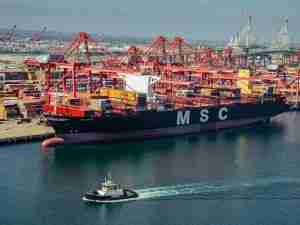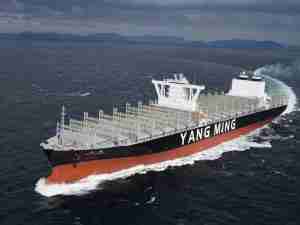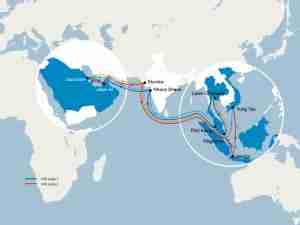On July 26, Representatives Stephanie Tubbs Jones (D-OH) and Phil English (R-PA), members of the House Ways and Means Committee, introduced H.R. 5889, the "Great Lakes Short Sea Shipping Enhancement Act of 2006." The legislation is designed to improve the efficiency of commerce in Cleveland (Ohio), Erie (Pennsylvania), and the surrounding Great Lakes region and ports.
Under current law, the Harbor Maintenance Tax (HMT) is assessed on cargo transported between US ports, and cargo imported to US ports from other countries. Because the HMT is only assessed on cargo if it moves by ship, the tax serves as a disincentive to move trucks and their freight by water. As such, the tax actually contributes to greater highway congestion which results in choked border crossings, increased fuel consumption, and increased air pollution.
H.R. 5889 would provide a narrow exemption to the HMT for the movement of non-bulk commercial cargo by water in the Great Lakes region. This includes the movement of freight and people between US ports on the Great Lakes and between US and Canadian ports on the Great Lakes.
By removing the HMT as a disincentive, this legislation will encourage the development of new shipping services on the Great Lakes. This could lead to the creation of new jobs in the maritime sector and enable commerce, such as steel and automotive parts, to flow more efficiently in and out of Cleveland and Erie.
"By enhancing the utilization of our waterways, we will boost the economic vitality of the Port of Cleveland, Northeast Ohio, and the Great Lakes region," stated Congresswoman Tubbs Jones. "This will translate into the increase of commerce and create new jobs. The legislation will also decrease truck congestion on our highways, wear and tear on our roads, and polluted air emissions."
"The Harbor Maintenance Tax is an albatross around the neck of goods and movement on the Great Lakes and other inland seas," said Rep. English. "By reforming this perverse levy we can make ferry service an effective option for moving people and goods out of ports like Erie and Cleveland."
"The Cleveland-Cuyahoga County Port Authority applauds Congresswoman Tubbs Jones for introducing Short Sea Shipping legislation. As cargo moves from ground to waterborne transportation, we expect the economic development benefit for the Cleveland area to be significant. The Congresswoman's proactive efforts will contribute to the success of the Port's future Cleveland-Canada ferry service and positively impact the region's economy," said Gary Failor, President of the Cleveland-Cuyahoga Port Authority.
Ray Schreckengost, Executive Director of the Erie-Western Pennsylvania Port Authority, also noted, "this critical legislation will remove the Harbor Maintenance Tax as an obstacle to our new freight ferry service to Nanticoke, Ontario. The transformation of our port into a hub of cross-border commerce will bring jobs and economic development to this community."
The Great Lakes Short Sea Shipping Enhancement Act is a win-win situation for the public and private sectors. H.R. 5889 would:
- Clear the way for new shipping services to be offered on the Great Lakes, creating jobs in the maritime sector;
- Enable commerce to flow more efficiently by offering alternatives to congested highways and new ways to transport cargo;
- Reduce the amount of wear and tear on the region's roads by offering trucks alternatives to congested highways;
- Reduce air emissions and improve air quality by diverting trucks off congested highways.
Specific benefit to Cleveland region
A recent study concluded that running a ferry service between Cleveland, Ohio and the Greater London Area of Ontario Canada is feasible as a profitable venture. There is a strong market demand for the proposed ferry service. The project would employ two vessels, one based in Cleveland and one in Canada. The proposed ferry service could transport 250,000










